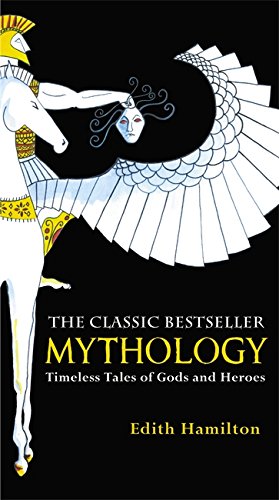Pagan Gods and the Naming of the Days
August 28, 2015
We speak the names of the gods on a daily basis and most people do not even realise it. Every day of the week, religious and non-religious people alike follow the old pagan tradition of giving thanks to the gods of old.
In ancient Mesopotamia, astrologers assigned each day of the week the name of a god. In a culture where days were consumed by religion, it is unsurprising that the days of the week were made in homage to the gods believed to rule the lives of mortals.
Many centuries later, the Romans, upon beginning to use the seven day week, adopted the names of the week to fit their own gods. These were then adopted by Germanic people who also adjusted the names according to their gods. It is predominantly these Germanic and Norse gods that have lived on today in the days of the week, which are outlined below.
 Constantine: Roman Emp...
Best Price: $1.99
Buy New $22.96
(as of 10:15 UTC - Details)
Constantine: Roman Emp...
Best Price: $1.99
Buy New $22.96
(as of 10:15 UTC - Details)
Sunday, as you may be able to guess, is the “Sun’s Day” – the name of a pagan Roman holiday. In many folklore traditions, Sunday was believed to be a lucky day for babies born. Many societies have worshiped the sun and sun-gods. Perhaps the most famous is the Egyptian Sun-god Ra, who was the lord of time.
Monday comes from the Anglo-Saxon ‘monandaeg’ which is the “Moon’s Day”. On this day people gave homage to the goddess of the moon. It was believed by ancients that there were three Mondays during the year that were
 Mythology: Timeless Ta...
Best Price: $1.52
Buy New $4.98
(as of 10:10 UTC - Details)
considered to be unlucky: first Monday in April, second in August and last in December.
Mythology: Timeless Ta...
Best Price: $1.52
Buy New $4.98
(as of 10:10 UTC - Details)
considered to be unlucky: first Monday in April, second in August and last in December.
Tuesday is the first to be named after a Germanic god – Tiu (or Twia) – a god of war and the sky and associated with the Norse god Tyr, who was a defender god in Viking mythology. Tiu is associated with Mars. He is usually shown with only one hand. In the most famous myth about Týr he placed his hand between the jaws of the wolf Fenrir as a mark of good faith while the other gods, pretending to play, bound the wolf. When Fenrir realised he had been tricked he bit off Tyr’s hand.
Wednesday means “Woden’s Day” (in Norse, ‘Odin’), the Old Norse’s equivalent to Mercury, who was the messenger to the gods and the Roman god of commerce, travel and science. He was considered the chief god and leader of the wild hunt in Anglo-Saxon mythology, but the name directly translated means “violently insane headship” – not exactly the name of a loving and kind god! Woden was the ruler of Asgard, the hoe of the gods, and is able to shift and change into different forms.
 Teutonic Myth and Legend
Buy New $8.49
(as of 03:45 UTC - Details)
Teutonic Myth and Legend
Buy New $8.49
(as of 03:45 UTC - Details)
 Vikings: Viking Mythol...
Best Price: $5.00
Buy New $13.00
(as of 04:35 UTC - Details)
Vikings: Viking Mythol...
Best Price: $5.00
Buy New $13.00
(as of 04:35 UTC - Details)
 Mythology: Timeless Ta...
Best Price: $1.52
Buy New $4.98
(as of 10:10 UTC - Details)
Mythology: Timeless Ta...
Best Price: $1.52
Buy New $4.98
(as of 10:10 UTC - Details)
Copyright © 2015 Ancient Origins

